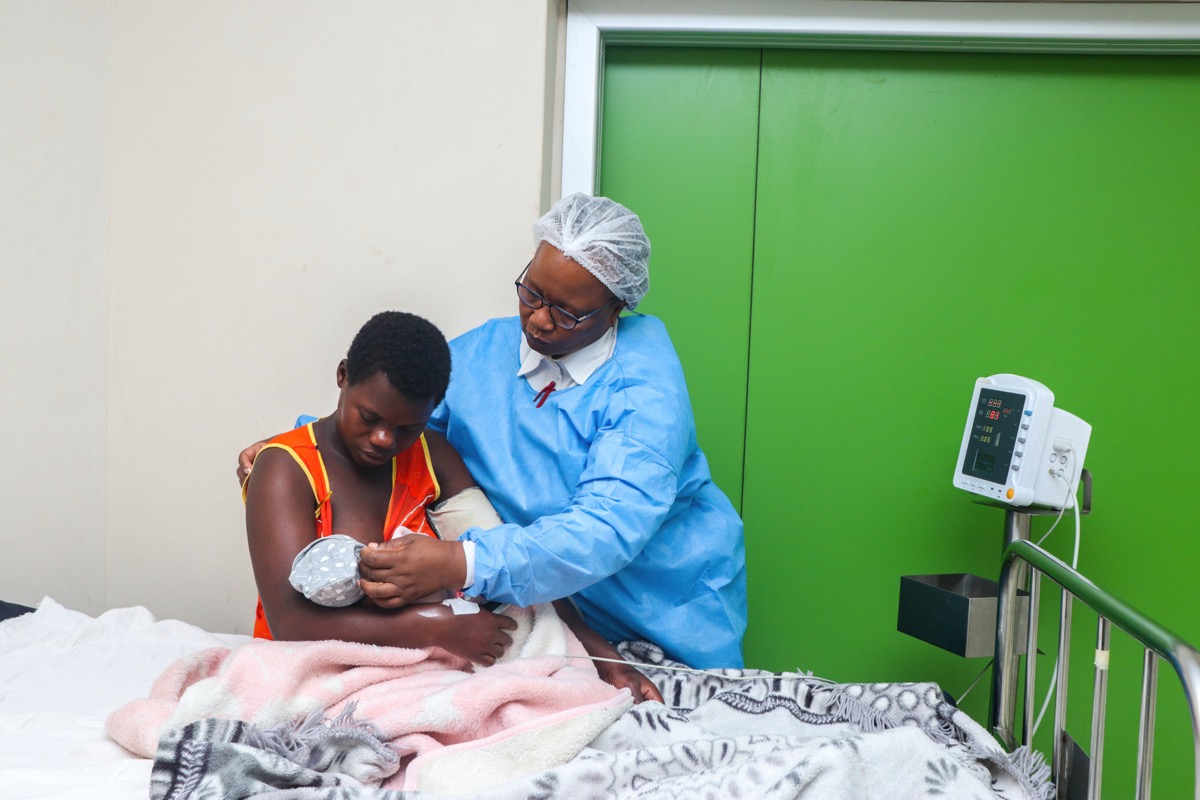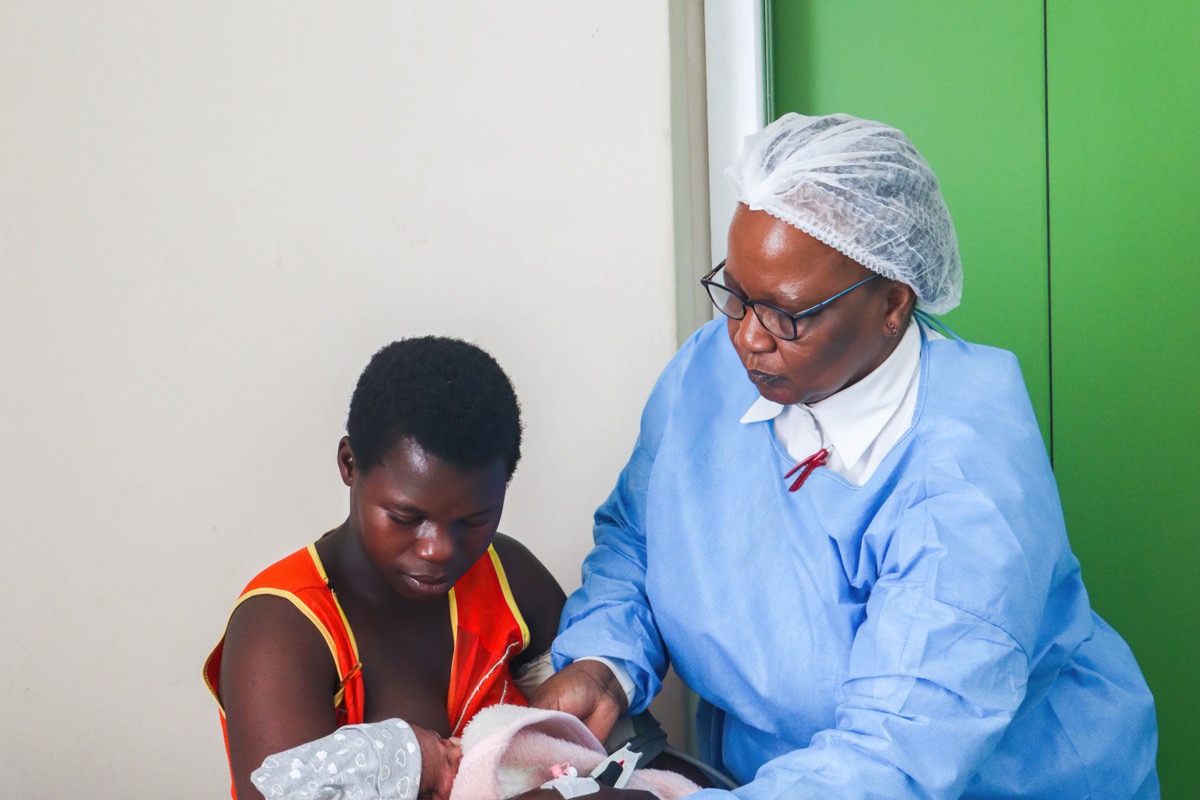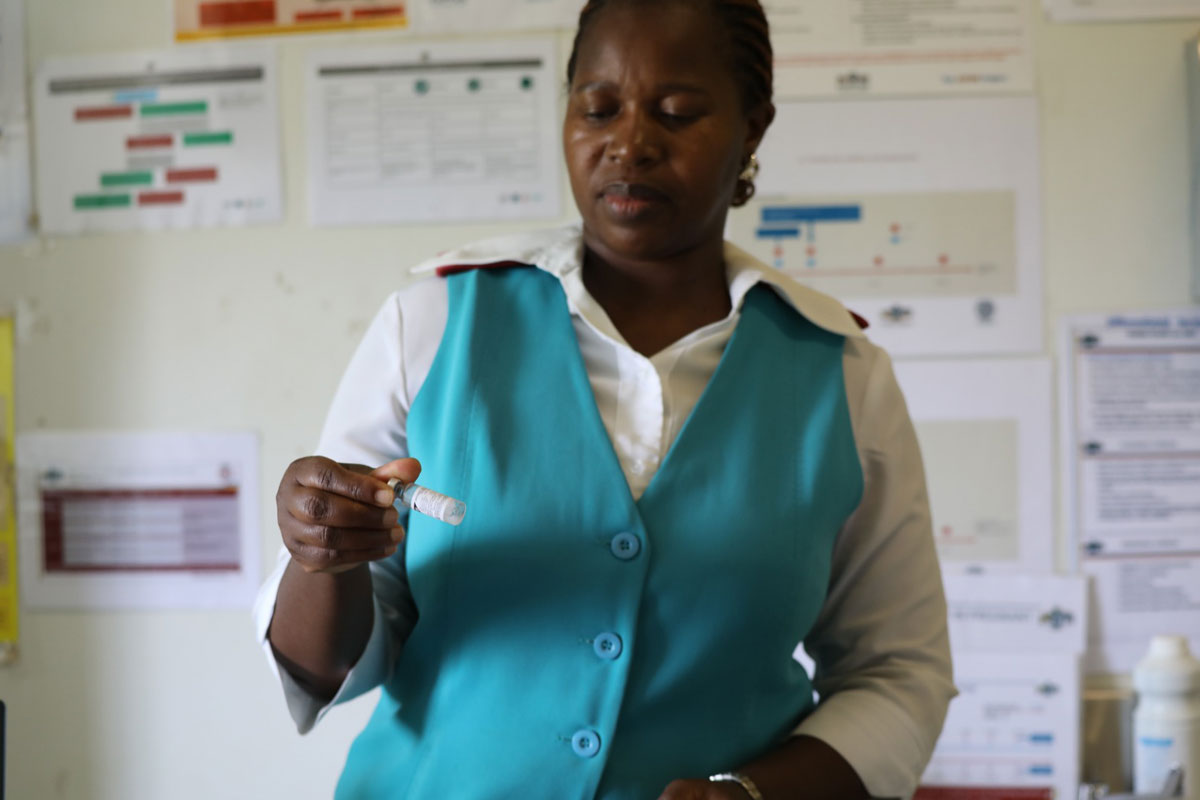An Eswatini midwife’s fight against infant mortality
Eswatini’s infant mortality rate has dropped massively during Lindiwe Shongwe’s three-decade career – but there’s further to go, and she’s not giving up.
- 12 March 2025
- 5 min read
- by Nokukhanya Musi–Aimienoho

For close to three decades, Lindiwe Shongwe, midwife and sister-in-charge at the Mbabane Government Hospital maternity ward, has delivered new life with skill and care.
She embarked on the path to becoming a midwife after witnessing the heartbreaking impacts of infant mortality on her own community. During her time on the job, the prospects for a newborn have improved: where in 2000, 69 babies in every 1,000 born in Eswatini were expected to die before their first birthday, by 2024, that number had dropped to just under 40. However, 40 deaths per 1,000 live births is still significantly worse than the global rate of just under 28.
But for Shongwe, the joys of the work outstrip its sadnesses. “I love being a midwife because I love seeing people happy,” Shongwe says. “It’s such a joy witnessing the excitement on a mother’s face when she holds her newborn baby for the first time. We do our best to offer the best quality services possible.”
Along the labyrinthine corridors of the Mbabane Government Hospital, mothers speak of her with reverence and gratitude, sharing stories of her kindness and patience. Bhekiwe Msibi, cradling her child at the vaccination clinic, reflects on her experience of pregnancy and childbirth. “During my pregnancy, I was scared. I didn’t know if my child would survive or if I would be a good mother. But Nurse Lindiwe taught me the importance of vaccinating my child against diseases that could have taken his life. She explained everything in a way I could understand,” she says.
.jpg)
Safety beyond the hospital ward
Shongwe and her team deliver over 500 babies a month. Under her leadership, the maternity ward has developed standard operating procedures and audit reports that not only improve accountability, but also ensure that lessons learned are shared across the department. Shongwe works with community health workers, bridging gaps in communication and fostering collaboration to enhance patient care.
Have you read?
Thabile Luhlanga, a community health worker, has seen the tangible impact Shongwe’s efforts have had on women and their babies. Acting as a conduit between Shongwe and the communities she serves, Luhlanga’s role as community health workers is crucial in ensuring the well-being of pregnant women and newborns. “We work very well with Lindiwe in referral and linkages from community to facility and facility to community. She inspires us community health workers to continue our work in reducing infant mortality,” she notes.
Working with a network of community health workers like Luhlanga – and with various healthcare institutions, national and international partner institutions, and the Ministry of Health – Shongwe’s hospital has been able to ensure that those 500 babies have access to the vaccines and essential medicines they need well after they leave the maternity ward.
Further to go
But Eswatini medical practitioner Dr Thys Lourens says the country must go further. “Governmental commitment, enhanced registration systems, increased funding for healthcare, and concerted efforts to bolster immunisation coverage need to take centre stage in any effective strategy. Eswatini can secure its future by investing in its most vital resource – its children,” he says.
Dr Angel Dlamini of the World Health Organization (WHO) recognises the impressive efforts of the WHO and the Ministry of Health to reduce maternal mortality rates, but acknowledges the significant challenges facing maternal healthcare in the country. “We must continue to invest in our healthcare systems, improve access to quality healthcare services, and educate our communities about the importance of antenatal care, safe deliveries, and postpartum care,” she says.

Dr Rejoice Nkambule, Deputy Director of Health Services at the Ministry of Health agrees, saying, “While we have seen progress, we continue to grapple with issues such as limited human resources and logistical challenges that make it difficult to reach remote communities. These hurdles affect our ability to maintain consistent immunisation coverage. Moreover, vaccine hesitancy remains a formidable obstacle. Despite concerted efforts to educate and inform, there are still pockets of resistance within our communities,” she elaborates.
Planning for survival
From the strategic cockpit of Eswatini’s campaign against infant mortality, Xolisiwe Dlamini, the chief of Eswatini’s Expanded Programme on Immunization (EPI), rallies her troops in the fight against vaccine-preventable diseases.
Under Dlamini’s command, the EPI maps out hard-to-reach locations, devising bespoke strategies to make sure no child is left behind.
“The EPI programme implements a variety of strategies to increase immunisation coverage across Eswatini. By utilising these strategies, the EPI programme ensures that immunisation services are accessible and available to all Eswatini residents, even in remote, hard-to-reach areas,” she explains.
.jpg)
In the maternal and child health trenches, Shongwe and Dlamini are critical allies. While Shongwe focuses on the health and safety of newborns in their first moments of life, Dlamini lays the groundwork for their long-term well-being.
“Eswatini’s nurses are the silent heroes of our nation’s fight against vaccine-preventable diseases. They are the unsung champions, standing firm in the face of adversity and ensuring that every woman and child has access to life-saving vaccines,” Dlamini says.








